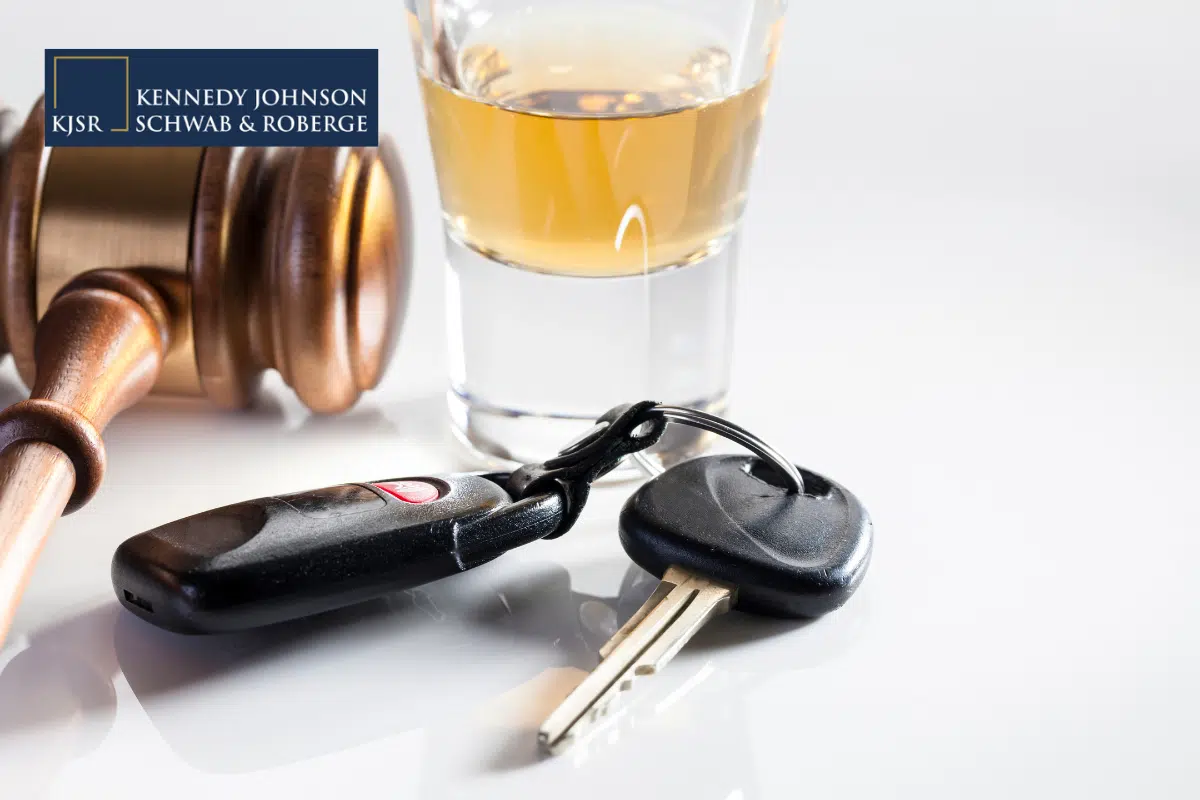A drunk driving accident can result in devastating injuries for you or a loved one. Victims of these accidents often experience significant harm, such as brain injuries, spinal cord injuries, or wrongful deaths. Fortunately, there are ways for people injured in Connecticut drunk driving accidents to obtain recourse for the resulting harm.
While drunk driving is a criminal offense in Connecticut, the state also gives an injured person the right to file a personal injury claim against the intoxicated person in civil court. Furthermore, Connecticut’s dram shop laws allow you to sue parties other than the drunk driver in some situations. Read on to learn more about dram shop laws in Connecticut and how dram shop liability works in Connecticut.
What Are Dram Shop Laws?
Dram shop laws impose liability on third parties, such as bars and restaurants, for serving alcohol to minors or an intoxicated patron of the legal drinking age who subsequently harms another person. The harm may include injuries, death, or property damage. Historically, the term “dram shop” referred to an establishment that sold alcoholic beverages, as a dram was a measurement of alcohol (3/4 of a teaspoon).
Most states have dram shop laws. The amount of compensation, the evidence needed to prove dram shop liability, and the statute of limitations for dram shop claims can vary depending on the applicable state law.
Dram Shop Laws in the State of Connecticut
Connecticut’s dram shop law is codified in Connecticut General Statutes section 30-102. Essentially, the statute states that a business that sells liquor to an intoxicated person who subsequently injures someone may be liable for some of the damages. Depending on the facts and circumstances of your case, you may have an effective dram shop claim as a Connecticut drunk driving accident victim.
Proving Dram Shop Liability
To establish liability under Connecticut’s dram shop laws, your dram shop claim must prove the following elements:
- The sale of alcohol to an intoxicated person
- The person, as a result of their intoxication, causing injury or damage to another person or property
There are many different situations where an establishment could have dram shop liability.
For example, a patron goes to a bar and consumes several drinks. Despite displaying excessive alcohol consumption behavior (slurred speech, dozing off, etc.), the bartender continues to serve them beer. The patron proceeds to crash their car into a pedestrian shortly after leaving the premises.
In the above example, the bar is potentially subject to dram shop liability. Nevertheless, Connecticut’s dram shop laws require proof beyond mere negligence of the defendant. The plaintiff must prove that the vendor “recklessly” or “intentionally” continued to sell alcohol to the intoxicated patron, which is difficult.
Dram shop liability exists independently of personal liability. If you sustain injuries from a drunk driver, you may have a personal injury claim against the driver and a dram shop claim against the relevant alcohol vendor.
Damages Sought in Dram Shop Cases
In Connecticut, plaintiffs injured by intoxicated drivers can recover many personal injury damages in dram shop cases. Some common types of damages awarded in these cases include compensation for:
- Hospital and medical bills
- Lost wages and benefits
- Lost or damaged property
- Household duties the victim can no longer perform
- Future medical expenses
- Death of a loved one
- Pain and suffering
The maximum amount of damages you can collect in a Connecticut dram shop case is $250,000. This limit applies irrespective of the number of people injured in the case.
While $250,000 is a significant sum, the amount may be insufficient for victims of serious accidents. Fortunately, you can also seek a claim for damages from the intoxicated person, which does not trigger the dram shop damages limit.
Statute of Limitations
You must file your Connecticut dram shop claim within one year of the date of your underlying injury.
Furthermore, you must provide the business or vendor with written notice of your intent to bring a dram shop claim. You must provide this notice within 120 days of your injury or 180 days in the case of incapacity or death. The document should include the following information:
- The date and time of the event
- The name of the intoxicated person to whom the liquor was sold
- The name and address of the injured victim or damaged property
- The date, time, and location of the accident
Due to the complexity and urgency surrounding dram shop claims, you should speak with a dram shop lawyer as soon as possible following your injury.
What Are Social Host Liability Laws?
Social host liability laws are similar to dram shop laws. These laws impose potential liability on hosts of private functions for serving alcohol to a minor or intoxicated person who causes injury or death to others. Social host laws are especially relevant in areas where college campuses are present.
Connecticut does not have social host liability laws. Nevertheless, social hosts can be charged with a misdemeanor under Connecticut’s criminal laws for “knowingly, recklessly, or with criminal negligence” providing alcohol to minors. State law also requires social hosts to make “reasonable efforts” to prevent people under the legal drinking age from accessing alcohol at their gatherings.
In addition to possible criminal charges, Connecticut courts have held that social hosts could be liable if they provide alcohol to a minor and that minor subsequently injures themselves or someone else due to intoxication.
Looking To Bring Civil Action Against a Dram Shop?
Dram shop laws allow drunk driving accident victims to recover additional damages from establishments that contributed to the drunk driver’s intoxication. If you want to file a dram shop claim, working with a dram shop attorney is the most effective way to obtain the compensation you deserve for your injuries.
To schedule a free initial consultation, contact Kennedy, Johnson, Schwab & Roberge, P.C., and speak with one of our representatives.

